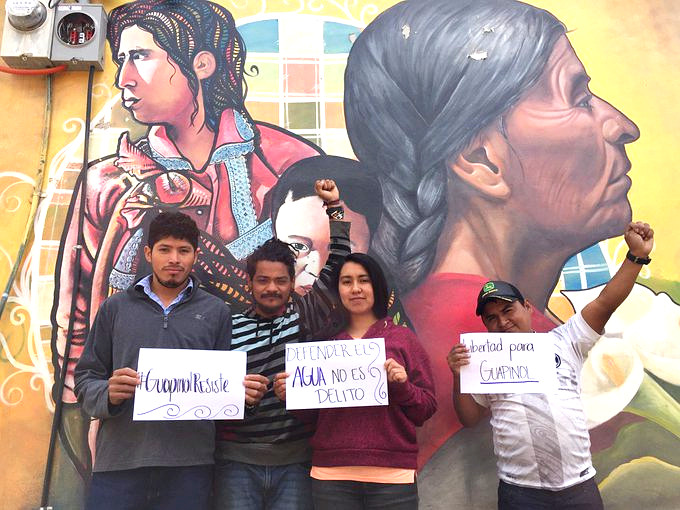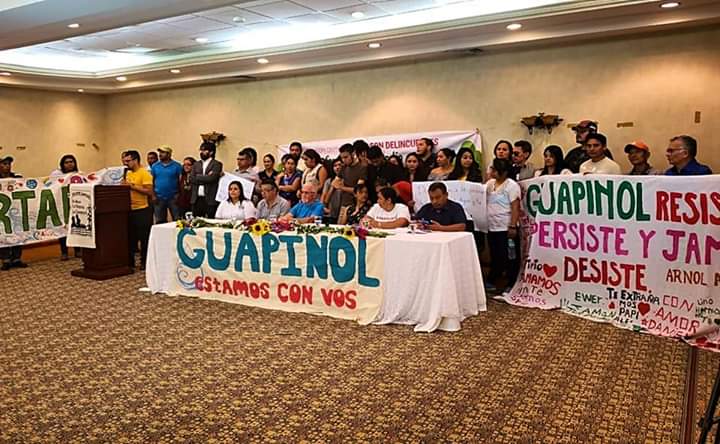RIO DE JANEIRO, BRAZIL – In Honduras, 17 organizations have joined together to form a nationwide “Front for the Defense of Water” in order to organize, along with groups from neighboring El Salvador, resistance to increasing privatization and pollution of natural water resources.

Last week, activists from regions affected by mining and hydroelectric projects met in the Autonomous University of Honduras. The aim was to exchange views on local challenges and join forces in the fight against the sell-off of rivers, forests and protected areas.
Currently, concessions for 371 mines and 120 hydroelectric projects have been granted in Honduras, reported Juan López, coordinator of the Tocoa Municipal Committee for the Protection of Public Resources. The affected communities suffered from multiple environmental damage, but most of all from the pollution of their drinking water.
However, the consequences of unrestrained exploitation of the common resources do not only impact them individually: With their meeting, the delegates from the predominantly rural areas also wanted to send an explicit signal to the capital Tegucigalpa, which is suffering from severe water shortages and other consequences of climate change.
Despite this, a new district with 2,500 single-family homes and villas is to be built in La Tigra National Park, an important biotope and water catchment area close to the city – and opposition to this is being violently repressed.
The repression of all attempts to protect water and the environment was the main topic of the meeting: The participants emphatically appealed for international solidarity for their concerns and in particular for the criminalized community and environmental activists of the village of Guapinol in the municipality of Tocoa in the Department of Colón.
After a disputed vote in Congress, two concessions for open-pit iron ore mining projects in the Montana de Botaderos National Park were awarded to Carlos Escaleros. They now belong to the Los Pinares company owned by the powerful entrepreneurial couple Lenir Pérez and Ana Facussé.

The open-pit mining projects threaten the water catchment areas of the Guapinol and San Pedro rivers. Since 2015, affected community residents who draw their drinking water from these rivers have therefore been trying to take legal action against the licenses. When this failed, they set up a protest camp along the access road.
In September 2018, private security guards from the Los Pinares company shot a young man in front of dozens of witnesses. The protesters detained the head of the security company until the police arrived.
As a result and because of an alleged arson attack on a truck and container, they were later charged themselves. After the proceedings against a group of protesters were dropped in early 2019 for lack of evidence, another seven camp members voluntarily surrendered to court a few months later. This had considerable consequences for them: Since September 1st they have been in custody, initially held in the notorious high-security prison “La Tolva”.
Last week, an appellate court should have ruled on the release of the seven defendants, but the judges remained passive. Instead, charges of damage to property and illegal appropriation of state and private property were brought against another Guapinol activist, 64-year-old Jeremías Martínez. He has been imprisoned for 14 months.
On February 27th, 2020, the Center for Justice and International Law (CEJIL) published a legal opinion stating that in the case of the eight detainees from Guapinol, guarantees of due process were violated and pre-trial detention was imposed arbitrarily and without sufficient grounds.
It is based, among other things, on accusations made over the telephone, which have never been checked on the ground. The CEJIL and many other organizations are demanding the immediate release of the prisoners.
The Guapinol case sets a precedent for the illegal use of pre-trial detention to silence human rights activists and environmentalists in Honduras.

